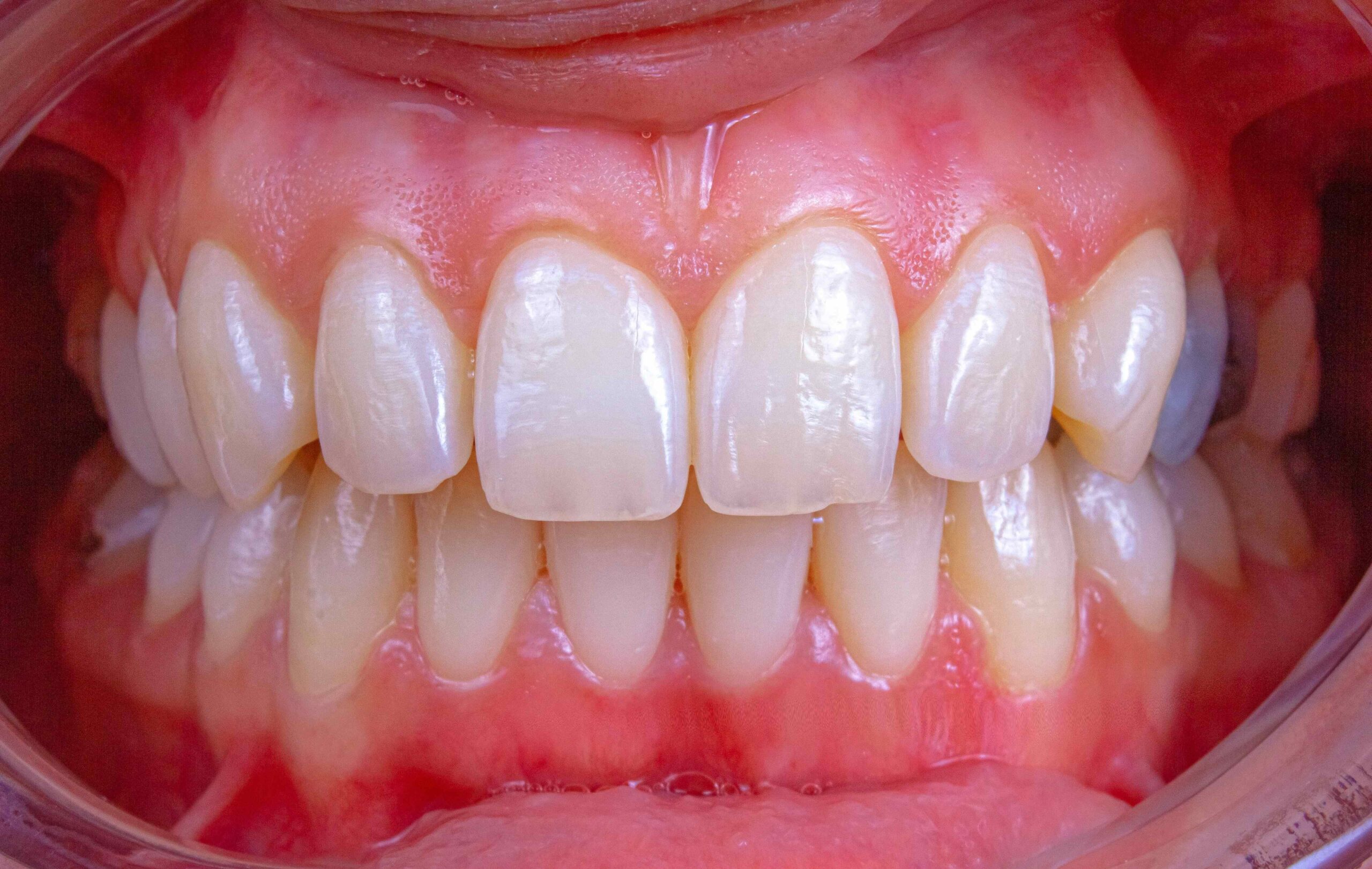Table of Contents
- Key Points
- Understanding Gum Disease: More Than Just Bleeding Gums
- The Hidden Dangers of Untreated Gum Disease
- The Importance of Professional Treatment
- Finding Quality Care in South Carolina
- Taking Action Against the Silent Threat
- References
Key Points
- Gum disease is more pervasive than many people realize.
- Its presence can increase the risk of many more serious (non-dental) health conditions, like heart disease.
- Understanding what causes gum disease and knowing how to identify symptoms is the first step toward combating it.
According to the Centers for Disease Control and Prevention, about 42 percent of adults over the age of 30 have some form of gum disease, yet most do not even realize it.1 There are various reasons that it goes undetected so frequently, but one of the main factors is that gum disease can progress quietly for years without obvious symptoms, making it one of the most overlooked yet serious dental conditions.
Moreover, gum disease has strong links to other negative health consequences, including heart disease, dementia, respiratory problems, and even an increased risk of cancer.2 So, untreated gum disease can cause more wide-ranging health consequences beyond your mouth.
The good news is that gum disease is entirely preventable. The first step is understanding the risk factors and circumstances that lead to it. Then, you and your dentist can implement a strategy to treat it and stave off gum disease for good.
Understanding Gum Disease: More Than Just Bleeding Gums
Gum disease, also known as periodontal disease, is a bacterial infection that affects the tissues surrounding and supporting the teeth. What begins as simple plaque buildup can evolve into a serious condition that threatens your oral health.3 The progression typically occurs in stages, starting with gingivitis and potentially advancing to severe periodontitis if left untreated.
Early detection is crucial for preventing the serious complications associated with gum disease. Unfortunately, many people fail to recognize the warning signs until the condition has progressed significantly.
In its early stages, gum disease may present subtle warning signs that are easy to dismiss. You might notice:
- Occasional bleeding when brushing or flossing
- Mild swelling of the gums
- Persistent bad breath
As the condition progresses, the symptoms become more pronounced and the damage more severe. Advanced periodontal disease can lead to tooth loss, bone deterioration, and serious complications that extend far beyond your mouth. Symptoms associated with advanced gum disease include:
- Loose or shifting teeth
- Changes in your bite
- Development of deep pockets between your teeth and gums
- Gum infection causes pain and swelling
- Pus around the teeth and gums
- Tooth loss
The bacterial infection that characterizes gum disease creates pockets between your teeth and gums, providing an ideal environment for harmful bacteria to flourish (the presence of these pathogens is one of the primary links between gum disease and other systemic diseases4). These bacteria produce toxins that break down the tissues and bone supporting your teeth. Without proper gum disease treatment, this process continues unchecked, leading to irreversible damage that can impact your quality of life and overall health.
It is important to note that some people experience very few symptoms even as gum disease progresses. This is why regular dental checkups are so important. A qualified Anderson SC dentist can detect early signs of periodontal disease before symptoms become apparent, allowing for more effective treatment and better outcomes.
The Hidden Dangers of Untreated Gum Disease
What makes untreated gum disease particularly dangerous is its ability to affect your entire body. Research has established strong connections between periodontal disease and several serious health conditions, making regular dental care essential for maintaining overall wellness.
The most significant health risks associated with untreated gum disease include:
- Cardiovascular Disease: The bacteria from gum infections can enter your bloodstream and travel to your heart, potentially contributing to heart disease, clogged arteries, and stroke. Studies show that people with periodontal disease are nearly twice as likely to suffer from coronary artery disease compared to those with healthy gums.
- Diabetes Complications: Untreated gum disease can make blood sugar control more difficult for diabetic patients. The chronic inflammation from gum infections increases insulin resistance, creating a dangerous cycle that affects both oral and systemic health.
- Pregnancy Complications: Periodontal disease has been linked to premature birth and low birth weight babies. The bacteria and inflammatory substances from gum infections can potentially trigger early labor, making proper oral care crucial during pregnancy.
- Respiratory Problems: Bacteria from infected gums can be inhaled into the lungs, potentially causing respiratory infections, pneumonia, and worsening existing conditions like COPD.5
The Importance of Professional Treatment
While good oral hygiene at home is essential for preventing gum disease, professional treatment is necessary once periodontal disease has developed.  The complexity of gum disease treatment varies depending on the severity of the condition, but early intervention always leads to better outcomes.
The complexity of gum disease treatment varies depending on the severity of the condition, but early intervention always leads to better outcomes.
Common professional treatments for gum disease include:
- Scaling and Root Planing: Deep cleaning procedures that remove plaque and tartar from below the gum line and smooth root surfaces to prevent future bacterial buildup.
- Antibiotic Therapy: Topical or oral antibiotics may be prescribed to help control bacterial infection and reduce inflammation.
- Laser Therapy: Advanced laser treatments can remove infected tissue and bacteria while promoting healing of healthy gum tissue.
- Surgical Procedures: In severe cases, procedures like flap surgery or bone grafts may be necessary to restore damaged tissues and bone structure.
Professional cleaning procedures, like scaling and root planing, can effectively remove bacteria and toxins from below the gum line, areas that are impossible to reach with regular brushing and flossing. These deep cleaning procedures help eliminate the infection and allow the gums to heal properly. In more advanced cases, surgical interventions may be necessary to restore damaged tissues and bone.
Ongoing maintenance is crucial for preventing the recurrence of periodontal disease. Regular professional cleanings, typically every three to four months for patients with a history of gum disease, help maintain the health achieved through initial treatment. Your dentist will also provide personalized recommendations for home care to support your ongoing oral health.
Finding Quality Care in South Carolina
If you are experiencing symptoms of gum disease or simply want to maintain optimal oral health, finding the right dental care is essential. When selecting a dental practice for gum disease treatment, look for:
- Comprehensive periodontal services and advanced diagnostic tools
- Experience with laser therapy and modern treatment techniques
- Technology like digital X-rays for accurate diagnosis
- Clear communication about your condition and treatment options
- Flexible scheduling for ongoing maintenance appointments
- Emergency services for urgent gum infections
Many modern dental offices utilize advanced technology to provide more effective and comfortable gum disease treatment. The best dentists in Anderson SC will take time to explain your condition thoroughly and develop a personalized treatment plan that addresses your specific needs. The key is finding a practice that prioritizes prevention and early intervention while offering the advanced treatments necessary for more complex cases.
Taking Action Against the Silent Threat
The silent nature of gum disease makes it particularly dangerous, but it also means that many cases can be prevented or treated effectively with proper care. Don’t wait for obvious symptoms to appear before seeking professional evaluation. Regular dental checkups allow for early detection and intervention, preventing the serious complications associated with untreated periodontal disease.
If you’re experiencing any symptoms of gum disease, or if it’s been more than six months since your last dental checkup, contact our Anderson SC dentist office, or one of our many locations throughout the Upstate, to set up an appointment. The sooner you address potential problems, the more treatment options you’ll have and the better your long-term prognosis will be.
References
- “Gum Disease Facts,” Centers for Disease Control and Prevention, May 2024, https://www.cdc.gov/oral-health/data-research/facts-stats/fast-facts-gum-disease.html.
- “The unexpected dangers of gum disease,” Medical News Today, December 2020, https://www.medicalnewstoday.com/articles/324485.
- Noah S. Gasner and Ryan S. Schure, “Periodontal Disease,” National Library of Medicine, May 2025, https://www.ncbi.nlm.nih.gov/books/NBK554590/.
- Fiona Q. Bui, Cassio Luiz Coutinho Almeida-da-Silva, Brandon Huynh, et al., “Association between periodontal pathogens and systemic disease,” Biomedical Journal, February 2019, https://www.sciencedirect.com/science/article/pii/S2319417018302634.
- “The unexpected dangers of gum disease,” https://www.medicalnewstoday.com/articles/324485.
Dr. Greg Ayers has over 35 years of experience running his own dental practice. He is the CEO and clinical director of ProGrin Dental and Cosmetics, which he and his son founded in 2012. Dr. Ayers is a graduate of the Medical University of South Carolina’s College of Dental Medicine, then furthered his dental education at the Pankey Institute for Advanced Dental Learning. Dr. Ayers is also a graduate of the acclaimed Nash Institute for Dental Learning, and he currently serves as a teaching mentor at the Institute, working with doctors and healthcare professionals from around the world. Dr. Ayers has also authored two books: “The Service Prescription – Healthcare the Way it Was Meant to Be,” and a motivational book entitled “SPARK, Igniting Your Dreams.”
